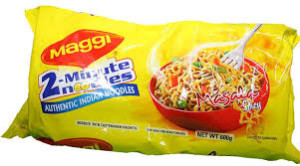Shoot them.
Richard Allison reports
Milling wheat growers are being reminded not to use shotguns to control vermin in grain stores, as some flour mills have reported increasing amounts of lead shot being found among grain intakes.
Martin Savage, trade policy manager at the National Association of British and Irish Millers (Nabim), says while some shot can be screened out, a significant quantity may remain to contaminate end-products.
“Despite many attempts, it is impossible to determine whether the shot results from farmers shooting within grain stores or if it comes from shooting over standing crops,” he said.
See also: New significant wheat yellow rust strain is identified
He pointed to a recent case where a grower’s crops became contaminated after a neighbouring farmer operated a simulated “driven-game” clay shooting operation on adjacent land and the shot fell onto the nearby wheat crop.
However, Mr Savage added that it is difficult to understand how significant quantities of shot can result from this practice, and survive the harvesting process.
“Therefore, most of us believe that in the majority of these contamination cases, the shot comes from pest control within farm grain stores. Farmers should certainly never shoot within grain stores.”
Live cartridges
Of greater concern for some mills is the recent discovery of live ammunition.
“Flour millers have not only detected lead shot in wheat, but also found spent .22 cartridges and even live .410 cartridges at intake,” Mr Savage said.
He explained that the problem is that the milling process flattens the shot to paper-thin proportions that cannot always be found by the existing in-line metal detection systems.
In the past, there have been recalls of finished baked products which are not only very costly, but potentially damaging to the reputation of the food producer.
“We will always attempt to identify the loads containing shot and will not hesitate to seek compensation where problems occur,” Mr Savage said.


 why a consumer had to buy a new plastic container to recycle or compost, or a lead-lined bag to go shopping.
why a consumer had to buy a new plastic container to recycle or compost, or a lead-lined bag to go shopping..jpg) Catherine Paykin, standing by the meat counter at Fairway said,
Catherine Paykin, standing by the meat counter at Fairway said,